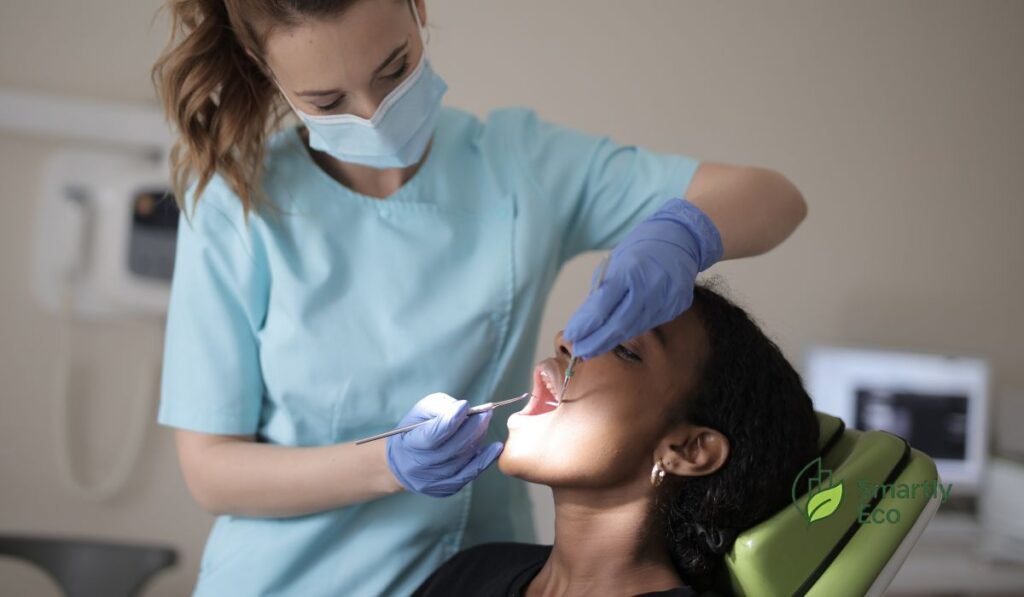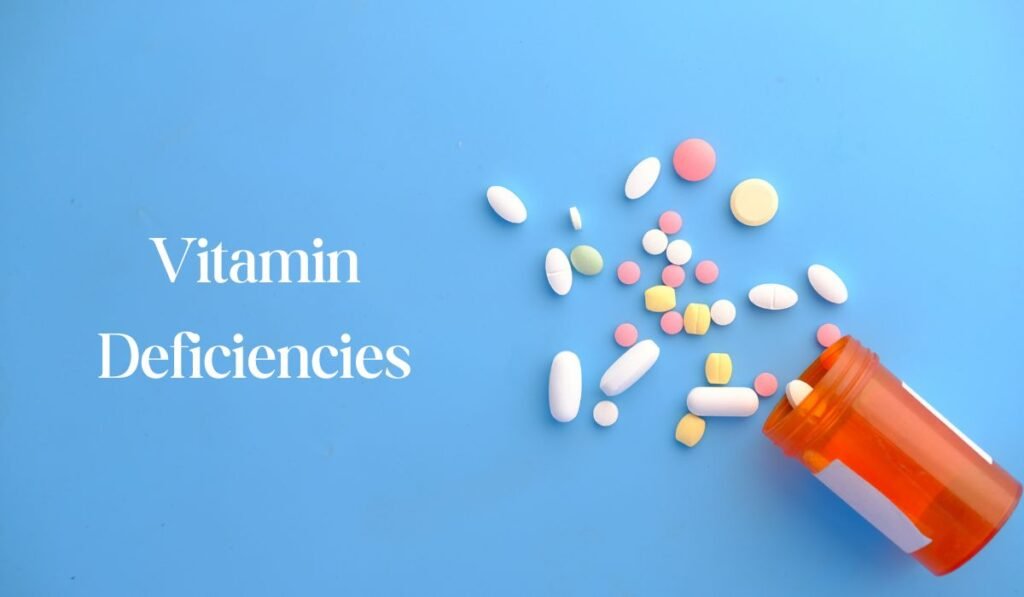If you ask most people in the city what their oral care routine is, they’ll probably say, “I brush twice a day.” That’s it. And if you dig a little deeper, even that “twice a day” isn’t always consistent.
I noticed this with my younger cousin. He’s in his early 20s, works late hours, eats whatever’s quickest—bread, Maggi, chips. One day, he complained his teeth hurt whenever he ate ice cream. Too young for dental issues, right? But the truth is, many of us are walking the same path without realizing it.
That’s when it clicked for me: oral hygiene is not just about a “white smile.” It’s about health—your gums, digestion, even your confidence. And honestly, most of us are doing it wrong.
5 Bad Oral Hygiene Habits You Probably Have
1. Falling for Fancy Toothpaste
We’ve all been there. The TV ad promises “super white teeth in 7 days,” and we buy it. But check the label—half the time it’s packed with chemicals like Sodium Lauryl Sulfate (the stuff that makes soaps foam). It can actually irritate your mouth.
👉 Better option? A simple herbal paste with neem or clove does the job without drama.
2. Brushing Right After Meals
I thought this was a good habit too—until I saw what it actually does. After eating, your mouth is acidic. Brushing immediately scrapes your enamel while it’s soft. It’s like scrubbing chalk.
👉 Fix: Wait at least 30 minutes. If you’re impatient, just rinse with water.
3. Brushing Like You’re Polishing Shoes
A lot of us (my cousin included) think “harder = cleaner.” Wrong. Aggressive brushing ruins gums and doesn’t even clean better.
👉 Right way? Soft bristles, small circles, 2 minutes. That’s it.
4. Ignoring the Tongue
This one is so common. You brush, maybe even floss, but skip the tongue. That’s where a lot of bad breath comes from.
Ayurveda says copper scrapers are best. And I’ll admit—when I first tried one, I was shocked at what actually came off my tongue.
5. Using Teeth as Tools
Biting nails, opening packets with teeth, cracking bottle caps (yes, I’ve seen someone do this)—and then wondering why teeth chip.
👉 Let’s agree: teeth are for food, nothing else.
5 Practices That Actually Work
1. Rinse After Every Meal
It sounds too simple to matter, but trust me, it makes a difference. Just swishing water for 15 seconds clears food particles before bacteria get to them.
I started reminding my cousin: “If you can wash your hands, you can rinse your mouth.” Now that can be a second nature for everyone of us.
2. Oil Pulling (Yes, That Old Ayurvedic Trick)
When my mom suggested it, I rolled my eyes. Who has time to swish oil in their mouth for 15 minutes? But one day I tried it—while showering. Didn’t even feel like “extra time.”
After a week, gums felt better and my mouth stayed fresh longer. Science agrees—it reduces harmful bacteria.
👉 Best oils: coconut (mild), sesame (classic), mustard (strong, fights infection).
3. Herbal Tooth Powder (Dant Manjan)
Before Colgate ads took over, India had dant manjan. Neem, clove, salt—simple stuff. It doesn’t just clean; it massages gums too. You may find it near your chemist or any supermarket store locally, and online on any marketplace such as Amazon/Flipkart!
You don’t need to replace toothpaste completely. Just alternate once or twice a week. Once you feel comfortable then replace it completely.
4. Tongue Cleaning With Copper
Plastic gets gross, steel feels harsh. Copper naturally kills bacteria. One scrape in the morning, and honestly, you’ll wonder how you skipped this all these years.
5. Eat & Drink Smart
This one is obvious but ignored. Sugary snacks, sodas, and midnight sweets? Worst for teeth. On the flip side, crunchy apples or carrots naturally scrub teeth.
And water—don’t underestimate it. Dry mouth = bacteria playground.
A Real Story (That Changed My Perspective)
My friend Karan (finance job, long hours, lots of coffee) had bleeding gums for months. He spent money on dentist visits, fancy mouthwashes, imported pastes—nothing stuck.
Finally, he tried basics: oil pulling in the morning, copper tongue scraping, and switching to herbal powder twice a week. Within two months, gums stopped bleeding, and his breath was fresher.
No miracle product. Just old-school consistency.
A Simple Daily Routine for City Life
Here’s something doable even if you’re rushing all the time:
Morning
- Tongue scrape (copper)
- Oil pulling (while showering or scrolling on your phone)
- Brush (gentle, herbal paste/powder)
- Glass of warm water
After Meals
Quick rinse with water
Night
- Brush before bed (brush again soft strokes, 2 mins)
- Optional: saltwater rinse if gums feel sore
Diet Reminders
- Keep a bottle of water handy.
- Cut down on sugary drinks.
- Add crunchy fruits/veggies.
How to Build This Habit (Without Burning Out)
Urban life makes it tough to add 5 new habits at once. Here’s how to actually make it stick:
- Start small. Pick one—maybe tongue cleaning. Do it daily for a week.
- Pair habits. Oil pull while showering. Rinse after meals when washing hands.
- Prep reminders. Keep your scraper near your toothbrush, roasted chana near your desk.
- Don’t chase perfection. If you skip one day, get back the next. Habits stick better when you don’t guilt-trip yourself.
Mistakes to Avoid (Even With Good Habits)
- Relying only on dairy or mouthwash.
- Thinking “more protein powder” (oops, wrong domain here 😅—more toothpaste!) will fix everything.
- Overdoing soy chunks—or here, oil pulling daily for hours. Balance is key.
- Forgetting variety—herbs, oils, and foods work best in rotation.
FAQs People Actually Ask About Oral Hygiene
Q1. Is oil pulling really effective, or just an old ritual?
Honestly, I had the same doubt. But modern studies confirm what Ayurveda always said—oil pulling reduces harmful bacteria and supports gum health. When my friend Karan added it to his routine, his bleeding gums stopped within weeks. It’s not magic, just consistency.
Q2. Do I still need to visit a dentist if I follow all these habits?
Yes—think of it like servicing your bike. Daily care prevents most problems, but dentists catch issues before they turn serious. Even Ayurveda agrees: self-care + professional checks is the best combo.
Q3. Which herbal tooth powders are actually safe?
Stick to simple ingredients—neem, clove, salt, triphala. Avoid powders with harsh abrasives or chemicals. My grandma’s rule still works: “If you can’t recognize the ingredient, don’t put it in your mouth.”
Q4. Can mouthwash replace these natural habits?
Not really. Mouthwash gives a quick “fresh breath” effect, but it wipes out good bacteria along with the bad. Rinsing with plain water or using herbal rinses is gentler and more sustainable for long-term health.
Q5. Isn’t tongue scraping a bit extreme?
I thought so too—until I tried copper scraping. The amount of coating that comes off in the morning is shocking. It instantly improves freshness and digestion. Ayurveda calls the tongue the “mirror of health,” and now I see why.
Conclusion
Our grandparents didn’t have fancy toothpastes or electric brushes, yet many of them kept strong teeth till old age. Their secret wasn’t magic—it was simple, consistent habits.
And honestly, you don’t need to change everything overnight. Maybe start with rinsing after meals. Or try a copper tongue scraper. Build from there.
The difference? You’ll feel it not just in your mouth, but in your confidence too. Because let’s face it—nothing beats a natural, healthy smile.
Nikita Palesha is a wellness advocate and eco-conscious writer who shares simple, sustainable tips for everyday living. She’s passionate about mindful choices that support a healthier planet and a balanced lifestyle.




